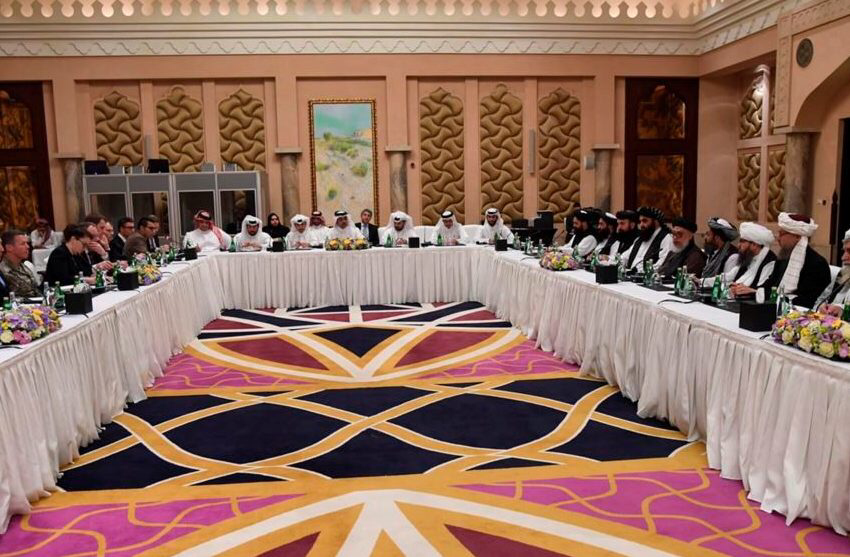NEW DELHI: The Taliban may have forced the U.S. and NATO forces to withdraw from Afghanistan but there is no guarantee that it will have a free run post-September, long time watchers of the country say. Pakistan’s ISI, suspicious of the Taliban’s secret overtures to the United States, is working towards elevating the Haqqani Network as its primary proxy in Afghanistan, Lt Gen Ravi K. Sawhney (retd), a former Director General of India’s Military Intelligence, has asserted in a recent interview to this writer.
Lt Gen Sawhney, who has maintained extensive contacts in Afghanistan for over two decades, believes that the Taliban is facing the twin challenges of taking on a toughened Afghan National Army and battling the rising importance of the Haqqani network in the ISI’s scheme of things. He confirms an assessment among seasoned Afghanistan observers that the Afghan Army is unlikely to crumble or collapse in the face of any onslaught that the Taliban and the Haqqani network may launch after the Americans leave.
Based on his own assessment and intelligence inputs, Lt Gen Sawhney says the Afghan Army has done creditably in the past one year, fighting and even counter-attacking the Taliban on their own since, as he puts it, “the Americans have mentally withdrawn from the battle, although they may be there physically”. The current Afghan Army is one of the better trained forces in Central Asia and the Taliban will not find it easy to overrun well-defended areas, he says.
Recent inputs from Afghanistan have pointed towards rising tension between the Haqqani network and the Taliban. One of the main reasons for this is apparently the elevation of Sirajuddin Haqqani as the Deputy Leader of the Taliban’s Emir. Gen Sawhney feels senior Taliban leaders such as Mullah Yakub (Mullah Omar’s son) and Mullah Baradar are keeping a wary eye on the ISI’s recent elevation of the Haqqani network into the Taliban Shura (decision-making body). This may have contributed to widening the schism between the Taliban and the Haqqanis.
There are other inputs that suggest that the ISI is using the Haqqani network to keep a close watch on the activities of the Taliban leadership. The Generals in Rawalpindi fear that the Taliban may have opened a separate secret channel with the Americans. There have been reports to suggest that the Biden administration has sought an arrangement whereby a few semi-permanent or informal bases for American or Western troops can be retained in Afghanistan even after September 2021.
These reports may have recently prompted the ISI to pressure the Taliban into issuing a statement warning countries around Afghanistan not to allow establishment of any military bases. As Gen Sawhney says: “The ISI is indirectly sending a message to the Americans that if you have to have bases around Afghanistan, you can only have them in Pakistan. It is a very clever ploy because if the Americans manage to have bases in any of the Central Asian countries, the clout that Pakistan enjoys would get reduced.”
Another reason that may be contributing to undercurrents of tension between the Taliban and the Haqqani network is the loss of control that the Taliban has reportedly suffered in Paktia, Paktika and Khost provinces. Not only have the Taliban cadres from these areas switched allegiance to the Haqqani network but also the Taliban has apparently lost out on revenue it used to collect through extortion at checkpoints on the border between Pakistan and Afghanistan.
Although the Taliban is reported to have around 30,000 armed members, most of its cadres from the provinces of Kandahar, Ghazni, Kabul, Oruzgan and Helmand, its influence in the traditional eastern Afghanistan strongholds, is now negligible possibly because of the rise of Daesh and other local warlords who get tribal support from across the border.
According to intelligence estimates, the Haqqani network has just about 5,000-6,000 well-trained and well-equipped cadres, thanks to their proximity to the ISI. According to an American analysis, most big attacks in Afghanistan over the past decade have the Haqqani signature. However, observers like Gen Sawhney believe the ISI has deliberately let the Taliban take the credit for these attacks so as to keep the Haqqanis shielded from closer scrutiny.
So what does the future hold for the Republic of Afghanistan? Most pragmatic analysts believe the new generation of Afghans, raised and educated after the fall of the Taliban in 2001, are unlikely to succumb to renewed Taliban domination since they have seen a different world full of possibilities and prosperity. It is, however, anybody’s guess as to how the dice will roll in the short run, especially because the Americans seemed to have lost the stomach for a fight or even a contest against the Taliban.










Post new comment